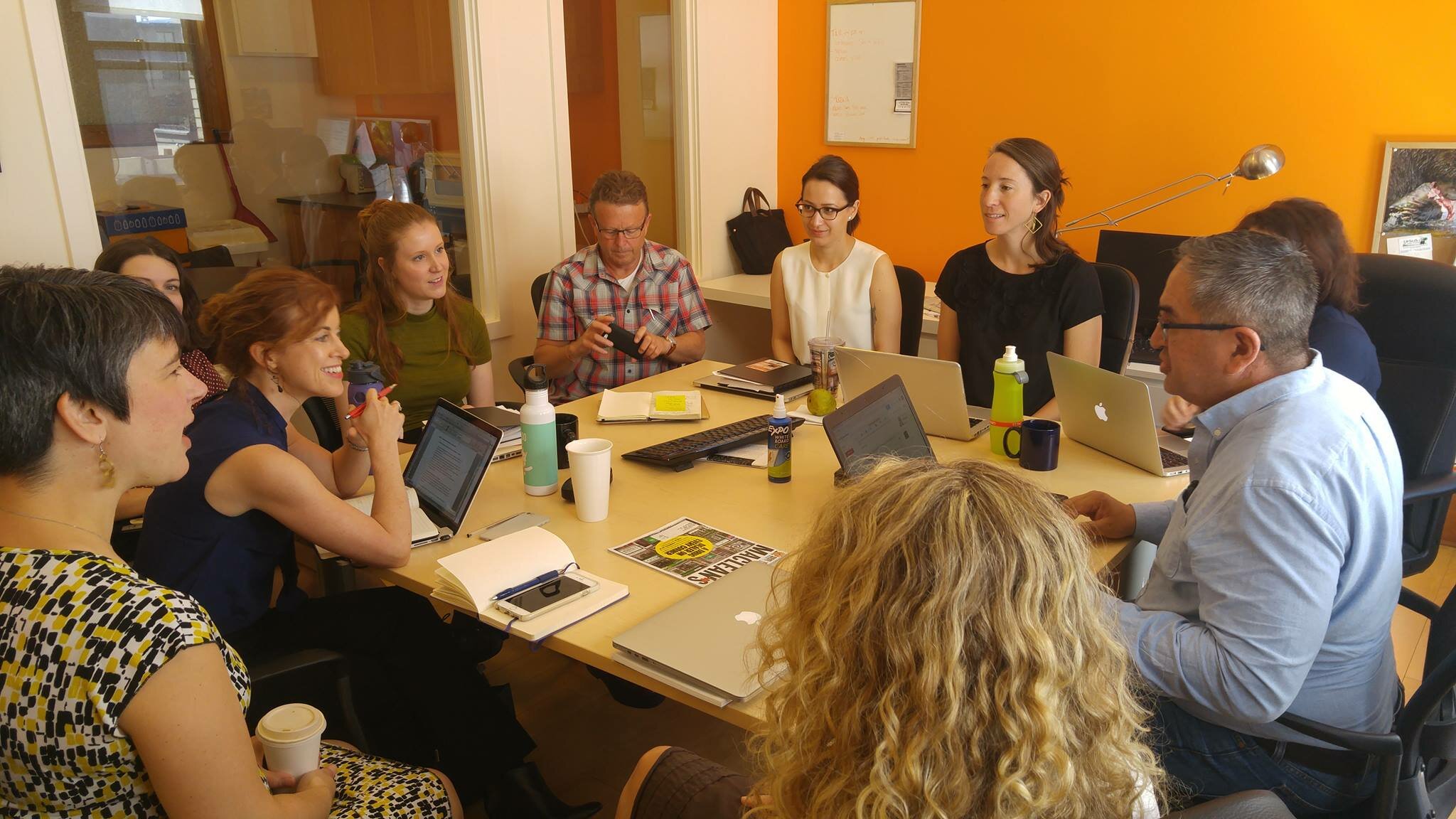Inside Discourse Media: A reflection on how journalism can promote more active citizenship

By way of a brief introduction, I am spending two months at Discourse Media as a research intern. The university I attend—Quest University Canada—requires its students to design and complete a minimum of one class of experiential learning in pursuit of their bachelor's degree. (Discourse co-founder Erin Millar also happened to teach me journalism this past fall at Quest!) This reflection addresses one of the key questions I had hoped to explore coming into this internship: How can journalism promote more active citizenship?
Here I am at last, a research intern at Discourse Media. The good thing is that after a week of working in this real and adult world of journalism, I am not rolling my eyes at the thought of addressing this question: How can journalism promote more active citizenship? A combination of researching best-practice examples of cross-border, cross-organization journalistic collaborations (who even knew such a thing existed?) and peppering my ever-patient colleagues with questions about everything media has brought me to two core thoughts on the matter.
The first thing journalism must do in order to promote active citizenship is think about how it will promote active citizenship. Ha! It sounds ridiculous in its obviousness. But when I saw it unfold before me on a whiteboard this past week, what seemed ridiculous was how seldom I had done this kind of deliberate and concerted thinking.
Here is how Erin Millar, Discourse's co-founder, explained it to me — whiteboard sketch and all. Journalists do the work of reporting and researching. They read things, take notes, interview people and analyze data. The traditional output of this process is an article, in which they include some of the key quotes and figures they gathered during their reporting. The output doesn’t have to be an article — it could be an infographic, a podcast, a short film — but for the sake of this explanation, it is.
Once it’s out circulating in society, an article might have some kind of impact. If it’s a speaking-truth-to-power journalism article, perhaps it will result in a policy change, or at least some serious pressure for one. If it’s an empathy-inducing exposé, perhaps it will encourage people to be kinder to their neighbours. There are myriad possible impacts a journalistic output could have, and a more active citizenry is one of these. So often, though, for me at least, these impacts have been hypothetical ideals — ”perhapses” and “I hopes.” If journalists were to consider impact first and then work backwards to designing an output, impact would be far less a matter of chance. Call it impact-oriented, strategic journalism, or something less jargonistic if you can think of it.
My second thought is that if journalism is to encourage active citizenship — or have any number of other desirable impacts — it must be read. And, really, read pretty widely. Otherwise it’s just scrap paper, or the digital equivalent.
Ensuring that potentially impactful journalism gets read requires thinking of it like a product, which must be effectively distributed and marketed. It requires creating a demand by convincing audiences that quality journalism is a good they need. If this sounds like economics, that is the point. Journalism needs to take capital-B Business seriously if it is to thrive. (I am saying all of this as someone who literally shivers at the thought of doing an MBA.)
As a journalist I have been pushed to think of impact earlier and more deliberately, and I’ve been shown the importance of thinking like a businessperson — at least some of the time. Does the output I am proposing have a chance of promoting more active citizenship? If not, what could? Then, crucially, is anyone going to actually read/see/listen to what I’ve written/filmed/recorded? How can I make sure that they do?
As per usual, a question has led to ten more. But hey, that’s getting somewhere.
